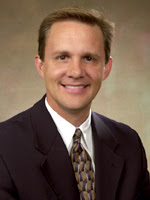Rep. Kaufert and library record law
From a Press Release on WisPolitics:
State Representative Dean Kaufert (R-Neenah) and Senator Mike Ellis (R-Neenah) will introduce legislation that will allow libraries to turn over surveillance tapes to law enforcement agencies without a court order. An incident recently at the Neenah Public Library highlighted the need for changing the law.
“The Neenah incident really highlights the need for the language change,” Kaufert said. “The last thing we want to do is create an environment that allows certain individuals to commit a crime knowing that it could be sometime before law enforcement will be able to identify them because they can’t get a hold of the evidence.”
Under current state law, no public library records can be released to identify a library user unless there is a court order. The State Attorney General’s Office last year in an opinion stated that because surveillance tapes reveal the identity of a library user the only way to receive those tapes is through a court order.
“Clearly, the law needs to be changed,” Ellis said. “The right to privacy is important, but it should not trump the right of the public to be protected. “What if some seven- or eight-year-old child had walked down that aisle and witnessed that disgusting act. Don’t they have rights, too?”
Kaufert and Ellis plan to work with the Wisconsin Library Association, Law Enforcement Groups, and Local Government leaders to make sure the language is clear and direct so this problem doesn’t happen in the future.
________________________________________Additional coverage of this issue can be found at the American Library Association:
A police investigation into whether a crime occurred April 2 at the Neenah (Wis.) Public Library has intensified efforts already underway by the Wisconsin Library Association and state legislators to enable librarians to share surveillance tapes with law enforcement in criminal cases without a subpoena. The investigation involves a patron’s report that a man was masturbating in a second-floor book aisle; by the time police arrived the suspect was gone.
Although Neenah Public Library Director Stephen Proces preferred to give police the pertinent surveillance tape immediately, he had to decline until he was served with a subpoena April 18 due to an informal opinion in November 2006 from the Wisconsin Attorney General’s office. The request stemmed from several thwarted investigations, including one in which the Sun Prairie Public Library wished to share with police a surveillance tape that might help identify who had stolen SPL’s donation box during library hours, according to the Wisconsin Library Association.
WLA is seeking a “new narrow exception to the court order requirement for release of library records for library administrative purposes including collection of fines and penalties, and the protection of library staff, library users, and library property.” State Sen. Michael Ellis (R-Neenah) and Rep. Dean Kaufert (R-Neenah) announced April 17 that they would introduce such an amendment. “The right to privacy is important, but it should not trump the right of the public to be protected,” Ellis said in the April 17 Appleton Post-Crescent. Assistant Attorney General Alan Lee, who wrote the opinion, told the newspaper that he backs the amendment.
Ironically, neither police nor library officials were able to identify the suspect from the subpoenaed video, from which several still photos were made. “We had 33 employees look at the video, and no one recognized this person,” Proces told American Libraries.
Posted April 20, 2007.
_______________________
According to Kaufert in a piece in the Post Crescent:
"It's another example where some bureaucrat is interpreting the law way too broadly," he said. "I don't want to see the police department have to jump through hoops just to do an investigation."
Kaufert said his staff would work with the state Department of Public Instruction and the Wisconsin Library Association, which already have drafted a narrow exception to the law that would allow libraries to share surveillance video with police when criminal activity is suspected.
"We will send it around for co-sponsors in the next week," Kaufert said. "Then we will introduce it as a bill."
Labels: Dean Kaufert, Policy

